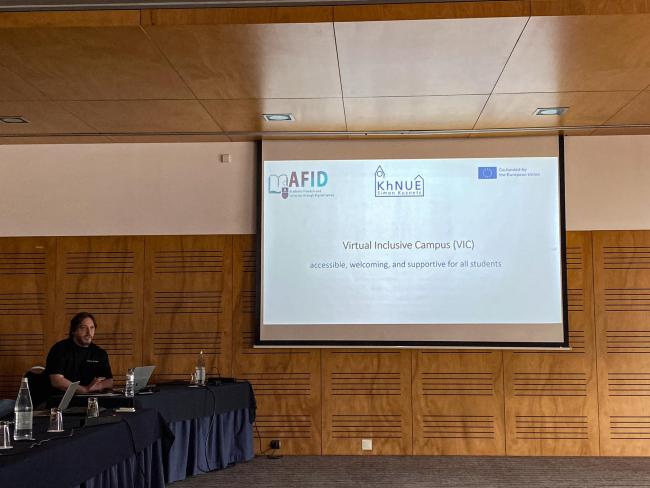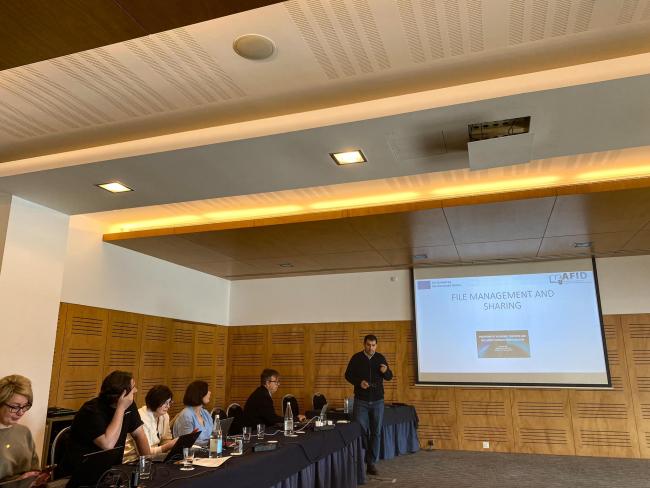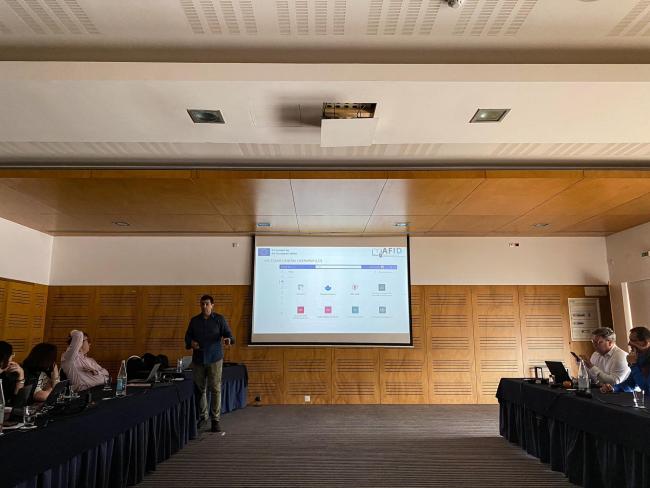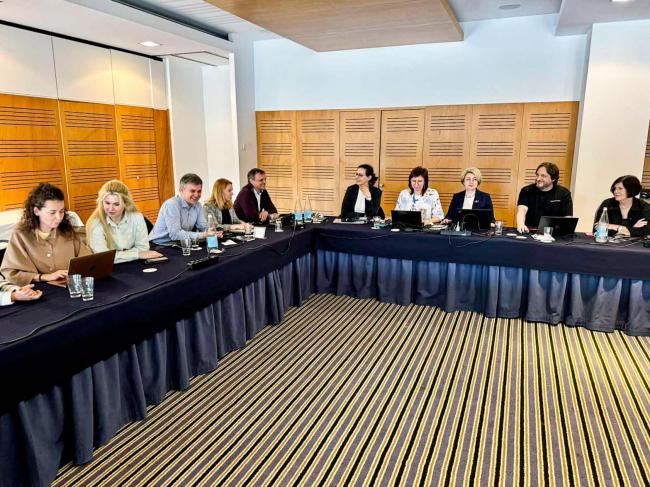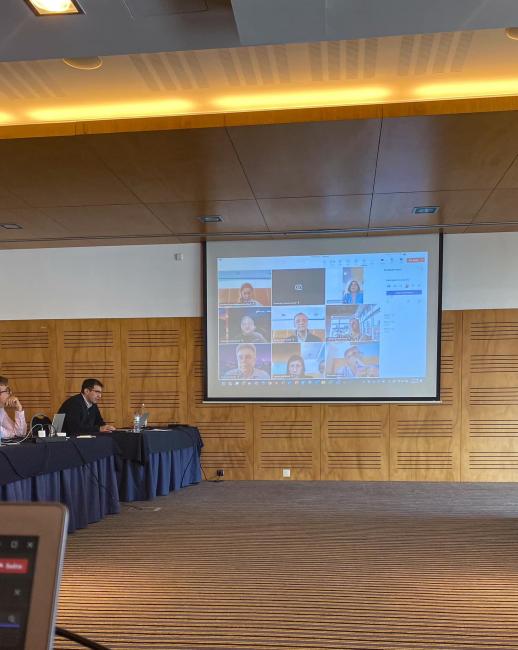
Teachers and administrative staff of AFID project participants took part in the "Digital Skills for Teachers and Administrative Staff" training (April 8-10, 2024).
The training started with discussing the draft version of the virtual inclusive campus (VIC), presented by AFID teams of the Simon Kuznets Kharkiv National University of Economics. Thus, training participants had the opportunity to discuss the current interface of VIC, the structure and content of courses in VIC, and features of the toolkit for ensuring inclusivity in the virtual campus.
The majority of the training focused on enhancing the digital skills of teachers and administrative staff to promote an inclusive educational process at VIC. In particular, the participants had the opportunity to explore and practice:
- VIC overview (First steps to VIC, user profile, and system customization, leveraging the provided accessibility features);
- Introduction to Microsoft Teams for education (Setting up MS Teams for a classroom environment);
- Creating a course and managing classes (How to create a team for a VIC course, adding students and staff to the team, managing permissions and roles within the team, course categories: Homepage, Class Notebook, Assignments, etc);
- Hands-on creating course contents (Class Notebook creation: type of sections, student permissions, editor elements, linking external information, etc., mastering OneNote tool);
- File management and sharing (Good practices for organizing files and folders within Teams: Sharepoint and OneDrive tools);
- Effective course communication: channels (Create a class group channel, use posts in a channel for direct messages and group discussions, best practices for posting in channels. Activity feeds, integrate new tabs in a channel: direct PDF file viewer, integrate 3rd party tools: example using Kahoot);
- Online classes (Set up a new meeting/online class from the calendar tool, schedule an online meeting for a course channel, participant roles in online classes, breakout rooms for small group discussions, mastering online meetings with screen/content sharing, interactive voting and participation, good practices in meeting follow-ups);
- Course assignments and grades (Understand the options for assigning tasks to students. Assign tasks, quizzes, and other activities to students, create rubrics and evaluation criteria, monitor the tasks assigned to students, evaluate and grade student assignments, and create assessments or exams integrating the Microsoft Forms application);
- Other integrated tools: reflect and insights (Track how students are interacting with the course, assignment analytics to monitor progress, attendance tracking to follow up with students if necessary, quantify the communication information and overview within the course, well-being check-in to conduct surveys about students' emotional and mental health states).
At the end of the training, the teachers involved in the project presented a brief overview of the courses offered at the VIC and discussed the key aspects of ensuring inclusion within these courses.

